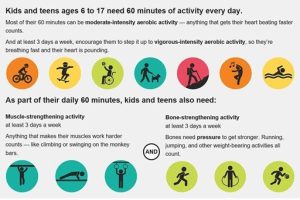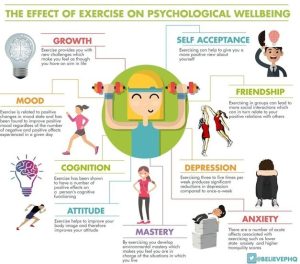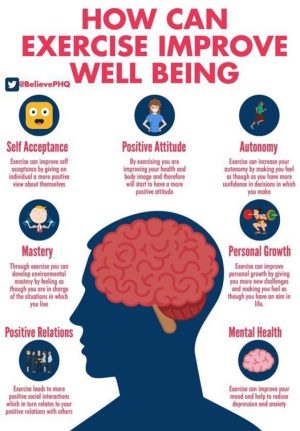
As parents, we all want our children to succeed academically, socially and emotionally. In today’s world, where academic pressures and screen time are on the rise, ensuring your child’s mental wellbeing is more important than ever. One powerful, yet often overlooked, tool for supporting their mental health is regular physical activity.
While younger students tend to run around and climb on the playground a lot, many of the older students at school tend to sit for most of the day. The Australian Institute of Health and Welfare guidelines for children aged 5–17, recommends at least 60 minutes a day of moderate to vigorous intensity physical activity and no more than two hours a day of screen-based activity for entertainment (for example, television, seated electronic games and computer use). The U.S. Department of Health and Human Services developed the following infographic with its recommendations based on the latest research on how activity affects health:

The Connection Between Exercise and Mental Health
Exercise is not just beneficial for physical health — it plays a crucial role in mental wellbeing as well. Here is how regular physical activity can positively impact your child’s mental health:
- Reduces Stress and Anxiety: Physical activity increases the production of endorphins, the brain’s feel-good neurotransmitters, which can help reduce anxiety and stress. Exercise furthermore acts as a natural stress reliever, lowering levels of the body’s stress hormones, such as adrenaline and cortisol, leading to a more relaxed and happier child.
- Improves Mood: Regular exercise is associated with improvements in mood and overall emotional wellbeing. It can alleviate symptoms of depression and boost self-esteem. Physical activity triggers the release of endorphins, often referred to as ‘feel-good’ hormones. These chemicals help combat feelings of depression and sadness, promoting a more positive outlook on life.
- Improves Focus and Academic Performance: Regular exercise increases blood flow and oxygen to the brain, enhancing cognitive functions like memory, concentration, processing speed and problem-solving skills. This can translate into better focus in the classroom and improved academic performance. It may also help in preventing cognitive decline as we age.
- Promotes Better Sleep: Good sleep is essential for your child’s mental and physical health. Exercise helps regulate sleep patterns, leading to better sleep quality, and ensuring your child gets the rest they need to tackle each day with energy and a clear mind.
- Builds Confidence and Self-Esteem: Achieving fitness goals, no matter how small, can boost your child’s confidence and self-esteem. Whether it is mastering a new sport or simply getting more active, these accomplishments help build a positive self-image.
- Increases Social Interaction: Group exercises or team sports offer opportunities for social interaction, which can reduce feelings of loneliness and isolation, thereby improving mental health.
- Provides a Healthy Outlet for Emotions: Exercise can serve as a productive way to channel emotions like frustration, anger and sadness, helping to prevent these emotions from leading to destructive behaviours.
- Increases Energy Levels: While it might seem counterintuitive, regular physical activity boosts energy levels by improving cardiovascular health and stamina, which in turn can reduce feelings of fatigue and increase overall mental wellbeing.
- Fosters Mindfulness: Certain types of exercise, such as yoga or tai chi, focus on mind- body connection, promoting mindfulness and relaxation. This can lead to a greater sense of calm and clarity in everyday life.
How You Can Help
Encouraging your child to be active does not have to be difficult. Here are some practical ways to incorporate more exercise into their daily routine:
- Be a Role Model: Children tend to imitate their parents’ behaviour. By making physical activity a regular part of your routine, you are setting a positive example for them to follow.
- Limit Screen Time: Encourage your child to spend less time in front of screens and more time engaging in physical activities. This could be as simple as playing outside, going for a family walk, or participating in a sport they enjoy. Remember, the key is consistency. Even small amounts of regular physical activity can make a big difference in how one feels.
- Support their Interests: Whether it is joining a sports team, trying out dance classes, or learning martial arts, support your child in exploring different physical activities until they find something they love.
- Make it a Family Affair: Turn exercise into a family activity. Weekend hikes, bike rides, shooting some hoops, or even family yoga sessions can be a fun way to bond while staying active.
By encouraging regular physical activity, you are not just helping your child stay fit — you are also giving them the tools they need to manage stress, improve their mood, and succeed both in and out of the classroom.


Until next time,
Marisa Smit
CGS Psychologist

 734
734











